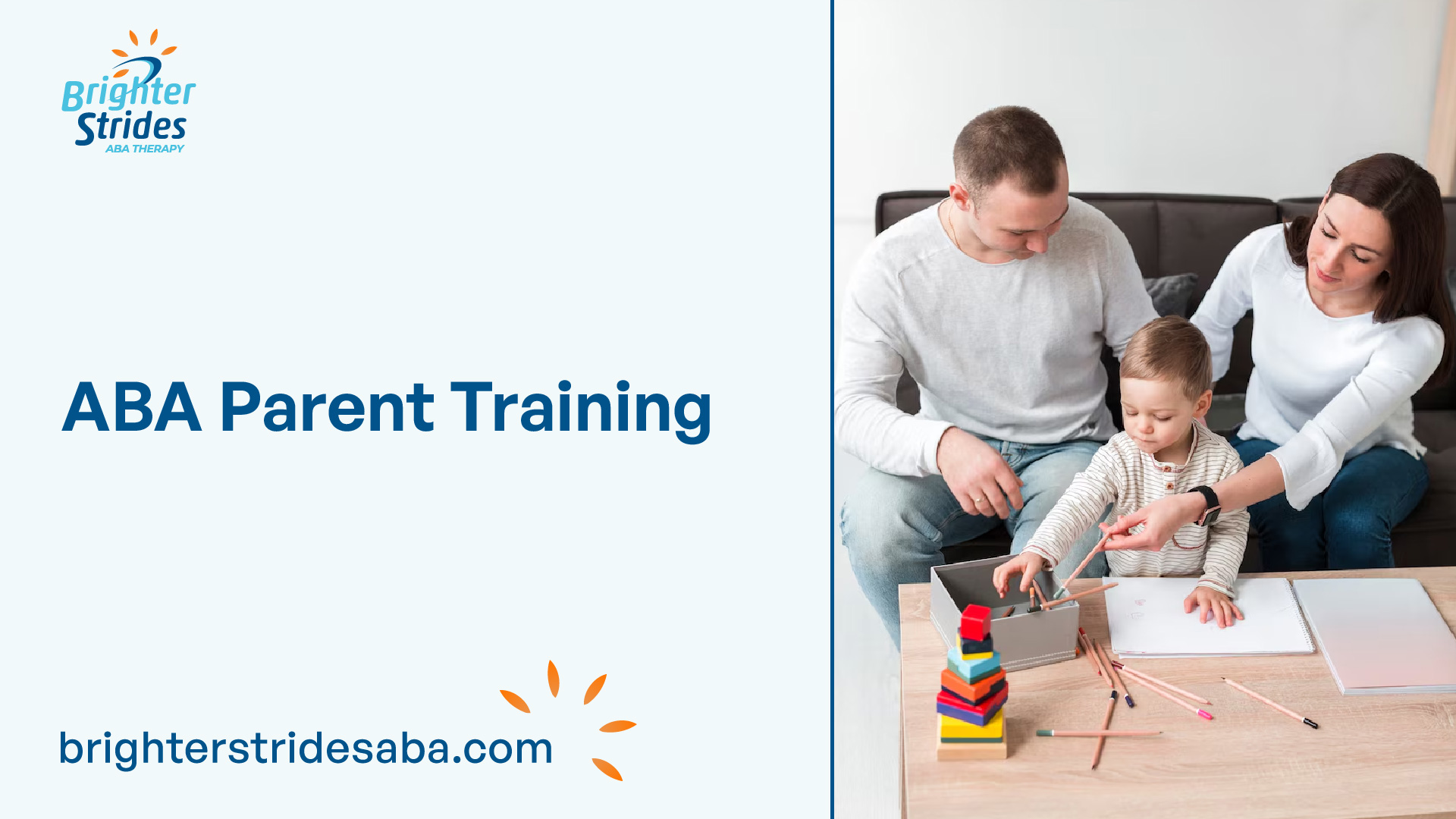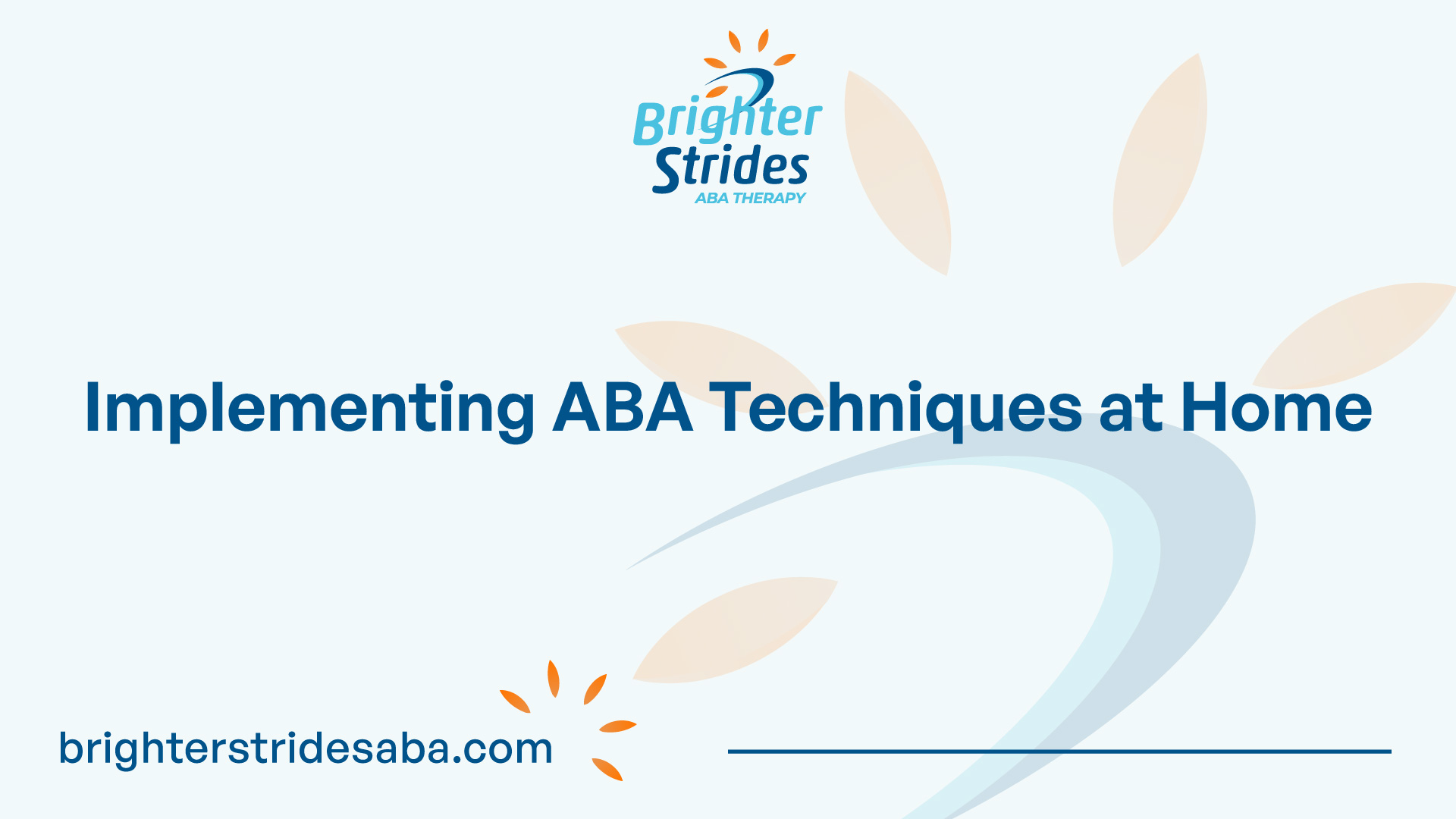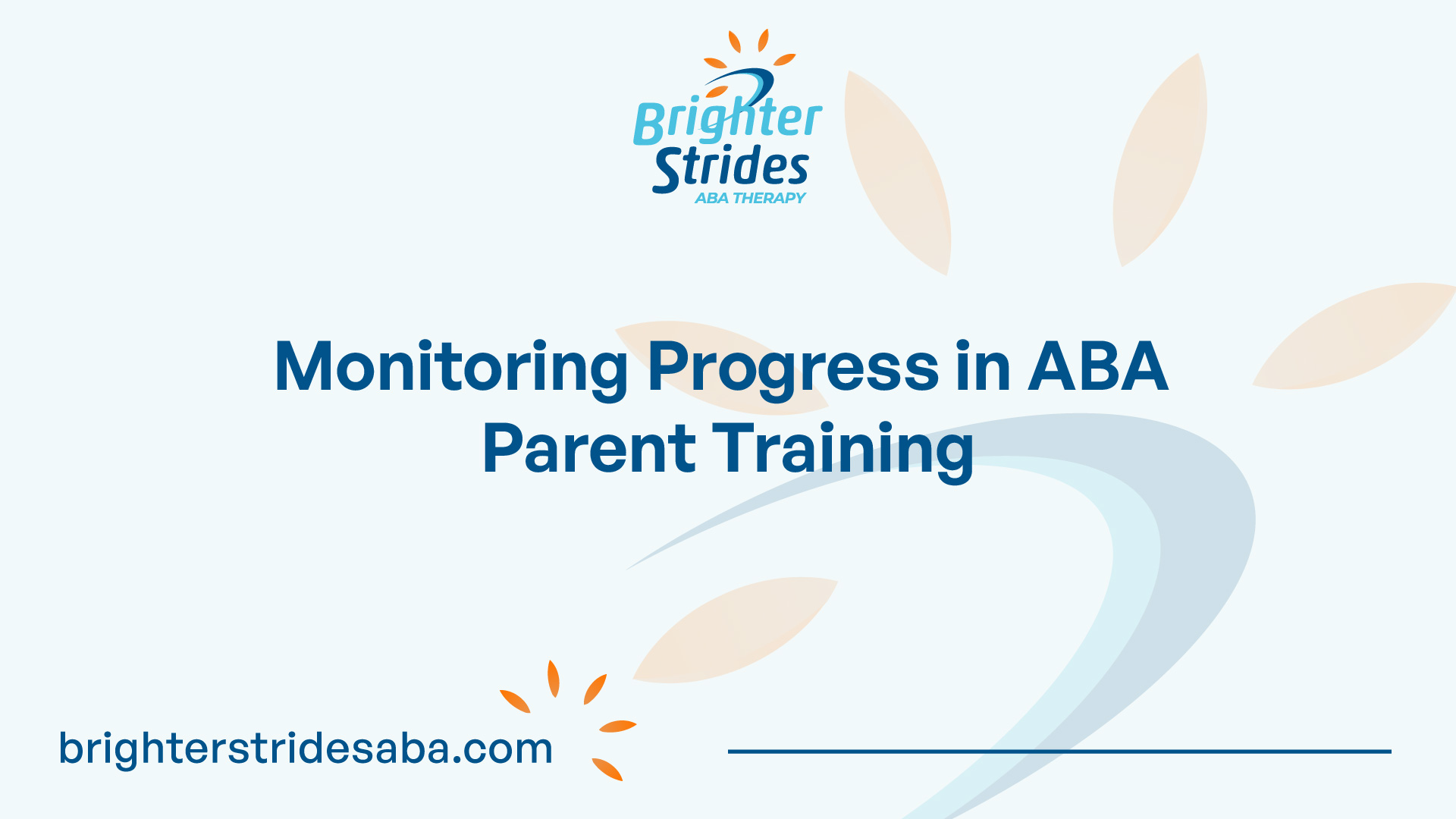
ABA Parent Training Overview
ABA parent training plays a vital role in the success of Applied Behavior Analysis (ABA) Therapy, empowering parents to become active participants in their child’s therapy and promoting the generalization of skills beyond the therapy setting. By equipping parents with the knowledge and skills necessary to implement ABA techniques and strategies consistently at home, it enhances the overall impact of ABA treatment.
Importance of ABA Parent Training
ABA parent training is considered a mandatory component of ABA Treatment Plans by many funding sources, including major insurance coverage providers. The significance of ABA parent training extends beyond the treatment of the child; it also has positive effects on the entire family system. Research has shown that ABA parent training reduces parent stress, improves family interactions, and enhances child treatment outcomes [1].
By actively involving parents in the therapeutic process, ABA parent training promotes a collaborative approach to treatment and ensures consistency in the implementation of strategies across various settings. It empowers parents to effectively support their child’s progress and development, leading to improved treatment integrity and better outcomes.
Goals of ABA Parent Training
The goals of ABA parent training are centered around equipping parents with the knowledge and skills required to implement ABA techniques effectively. These goals may include:
- Understanding ABA principles: Parents are educated about the fundamental principles of ABA, including reinforcement, prompting, shaping, and generalization. This knowledge empowers parents to implement these principles consistently at home and reinforce the skills taught during therapy sessions.
- Promoting generalization: ABA parent training aims to facilitate the generalization of skills learned in therapy to real-life situations. Parents learn strategies to encourage their child’s application of learned skills in different environments, promoting the transfer of skills beyond the therapy setting.
- Developing behavior management skills: Parents are taught behavior management strategies to address challenging behaviors effectively. This includes techniques such as reinforcement, redirection, and providing appropriate consequences. By equipping parents with these skills, ABA parent training helps create a consistent and supportive environment for the child.
- Enhancing communication: ABA parent training focuses on improving communication between parents and their child. Parents learn techniques to promote effective communication, such as using clear and concise language, employing visual supports, and implementing social communication strategies.
- Building positive relationships: ABA parent training emphasizes the importance of building positive relationships between parents and their child. Parents are guided on fostering strong bonds through play, engagement, and positive interactions, which can contribute to the overall success of the therapy.
Setting clear and achievable goals is a crucial step towards success in ABA parent training. By establishing specific objectives and tailoring them to individual needs, parents can effectively support their child’s development and progress. Additionally, two key strategies that can enhance success in ABA parent training are consistency and reinforcement, as well as collaborating with ABA therapists. Consistency involves maintaining a regular routine and following through with strategies consistently across different settings and situations. Collaboration with ABA therapists ensures ongoing support, guidance, and feedback throughout the training process [2].
Effective Strategies in ABA Parent Training
When it comes to ABA Parent Training, employing effective strategies is key to achieving positive outcomes. Two widely recognized strategies in ABA parent training are Behavior Skills Training (BST) and parent support and education.
Behavior Skills Training (BST)
Behavior Skills Training (BST) is a highly effective method used to teach parents specific skills and programs. It involves a step-by-step instructional process that includes modeling, rehearsal, and feedback to facilitate learning of new behaviors [1]. By breaking down complex skills into manageable steps, BST helps parents acquire the necessary skills to implement ABA techniques effectively.
BST has been shown to increase parent engagement in the therapeutic process and improve treatment integrity and parenting skills. It empowers parents to actively participate in their child’s development and progress, leading to more successful outcomes [1]. By providing clear instructions, demonstrating the desired behaviors, allowing parents to practice, and offering constructive feedback, BST equips parents with the tools they need to support their child’s progress.
Parent Support and Education
In addition to parent education, providing support to parents is crucial in the effectiveness of ABA parent training. Parent support enhances parent engagement, improves treatment integrity, and reduces parenting stress. It goes beyond simply providing information and involves ongoing guidance, encouragement, and assistance to parents throughout the training process [1].
Parent support can take various forms, such as regular check-ins with therapists, access to resources and materials, and opportunities for parents to connect with other families undergoing similar training. By offering support, parents feel more confident in implementing ABA techniques at home and are better equipped to address challenges that may arise.
Combining parent support with education has been proven to yield better results than parent education alone. The combination enhances parent engagement, improves treatment integrity, and reduces parenting stress. Through a comprehensive approach that includes both support and education, parents can develop the necessary skills and knowledge to effectively support their child’s progress [1].
By utilizing strategies like Behavior Skills Training (BST) and providing parent support and education, ABA parent training can maximize positive outcomes for children and families. These approaches empower parents to actively participate in their child’s development and create a supportive environment for continued progress. It is important to recognize the significant role that effective strategies play in achieving successful outcomes in ABA parent training.

Implementing ABA Techniques at Home
Implementing Applied Behavior Analysis (ABA) techniques at home is a key aspect of ABA parent training. It allows parents to play an active role in promoting their child’s development and progress. In this section, we will explore two effective methods for implementing ABA techniques at home: remote delivery of parent training and utilizing video-based training.
Remote Delivery of Parent Training
For families who lack access to ABA providers in their area or reside in rural areas, remote delivery of parent training is a crucial option for receiving ABA services. It ensures that families can still benefit from quality parent training even when in-person direct services are not feasible [1]. Remote delivery offers the convenience of accessing training sessions from the comfort of one’s home, eliminating the need for travel and allowing for flexible scheduling.
During remote parent training sessions, ABA techniques and strategies can be taught through video conferencing platforms or specialized software. This allows parents to interact with ABA professionals through live video sessions, receiving real-time guidance and feedback. Remote delivery of parent training ensures that families have access to the support they need, regardless of their location.
Utilizing Video-Based Training
Video-based training is an effective method for delivering ABA techniques to parents. Platforms like CentralReach’s Avail tool provide an easy-to-use platform where parents can watch models of skills they are to use with their children [1]. Video-based training offers several advantages over written directions. It allows parents to observe visual demonstrations of specific ABA techniques, making it easier to understand and replicate the strategies at home. Videos can also provide real-life examples and scenarios, enhancing the parent’s learning experience.
Furthermore, video-based training can be particularly beneficial for parents who may struggle with reading or comprehension. Watching videos allows parents to see the techniques in action, making it more accessible and engaging. Parent training videos can be accessed at any time, providing parents with the flexibility to review the content as needed.
By utilizing remote delivery and video-based training, parents can learn and implement ABA techniques in their home environment effectively. These methods provide access to training regardless of geographical limitations and offer visual demonstrations that enhance the learning experience. It is important to note that the collaboration between ABA professionals and parents remains crucial for successful implementation. Working together, parents and professionals can ensure that ABA techniques are consistently applied and tailored to meet the unique needs of each child.
To further enhance the success of ABA parent training, it is important to customize goals for the child and prioritize consistency and reinforcement in the implementation of ABA techniques. These aspects will be explored in the following sections.
Enhancing Success in ABA Parent Training
To enhance the success of ABA parent training, it is crucial to customize goals for the child and maintain consistency and reinforcement throughout the training process.
Customizing Goals for the Child
One of the key factors in ensuring the effectiveness of ABA parent training is customizing goals to meet the specific needs of the child. By establishing clear and achievable goals, parents can provide targeted support that maximizes their child’s progress. It is important to regularly assess and reassess these goals to ensure they remain relevant and challenging as the child develops [2].
Customization of goals allows parents to focus on specific areas of development and tailor interventions to address the unique challenges faced by their child. This personalized approach ensures that the training is individualized and effective, promoting optimal growth and learning.
Parents may work closely with ABA therapists to set goals that are aligned with the child’s behavior and developmental needs. Collaboration between parents and therapists helps to establish realistic and meaningful objectives that can be systematically targeted during the training process. By incorporating the child’s strengths and areas for improvement into the goal-setting process, parents can create a supportive and motivating environment for their child.
Consistency and Reinforcement
Consistency and reinforcement are two essential strategies that contribute to the success of ABA parent training. Consistency involves maintaining a regular routine and following through with strategies consistently across different settings and situations. This consistency provides predictability and structure, which are crucial for the child’s learning and generalization of skills. By using consistent approaches, parents can help their child understand and respond to expectations more effectively [2].
Reinforcement plays a vital role in ABA parent training by promoting positive behavior change. It involves providing rewards or consequences to increase or decrease specific behaviors. By consistently reinforcing desired behaviors, parents can motivate and encourage their child to engage in appropriate actions. Reinforcement can take the form of praise, tokens, or other rewards that are meaningful to the child. The use of positive reinforcement helps to strengthen desired behaviors and increase the likelihood of their recurrence.
In addition to consistency and reinforcement, collaborating with ABA therapists is crucial for the success of parent training. ABA therapists can provide guidance, feedback, and ongoing support to parents, ensuring that the training aligns with best practices and evidence-based strategies. This collaboration fosters a team approach, where parents and therapists work together to implement effective interventions and monitor progress.
By customizing goals for the child and maintaining consistency and reinforcement throughout the training process, parents can enhance the success of ABA parent training. These strategies, combined with collaboration with ABA therapists, provide a solid foundation for promoting positive behavior change and facilitating the overall development of the child.

Monitoring Progress in ABA Parent Training
When it comes to ABA parent training, monitoring progress is essential to gauge the effectiveness of the strategies implemented and the progress made by the child. Data collection and analysis, along with collaboration with ABA therapists, play a crucial role in ensuring the success of ABA parent training.
Tracking Success with Data
Data collection is a fundamental aspect of ABA parent training. It allows for the objective measurement of progress and the identification of areas that require further attention. By tracking data, parents and ABA therapists can determine if the implemented strategies are leading to the desired outcomes and make adjustments as needed.
Data collection methods can include direct observation of the child’s behavior, the use of rating scales, and the recording of specific target behaviors. Additionally, data should be collected consistently and systematically to ensure accuracy and reliability. This data-driven approach allows for evidence-based decision-making and helps parents and therapists track progress over time.
Collaboration between parents and ABA therapists is crucial for effective data collection and analysis. Regular communication and sharing of data ensure that everyone involved is on the same page and can work together to address challenges and make informed decisions. It also allows for the sharing of expertise and the identification of additional strategies or modifications to existing ones.
Collaboration with ABA Therapists
Collaboration between parents and ABA therapists is critical for the success of ABA parent training. ABA therapists bring their expertise and experience to the table, providing guidance and support to parents as they navigate the training process.
Regular meetings and discussions between parents and ABA therapists help in monitoring progress and addressing any concerns or questions that may arise. These collaborative sessions provide an opportunity to review the collected data, assess the effectiveness of the strategies being used, and make any necessary adjustments to the training plan.
ABA therapists can also provide parents with additional resources and strategies to enhance the effectiveness of the training. This collaborative approach ensures that parents feel supported and empowered to implement the strategies learned during the training sessions effectively.
By tracking progress through data collection and collaborating with ABA therapists, parents can gain a comprehensive understanding of their child’s progress and make informed decisions regarding the training strategies. This collaborative effort between parents and ABA therapists maximizes the effectiveness of ABA parent training and promotes positive outcomes for the child.
Overcoming Barriers in ABA Parent Training
To ensure the success of ABA parent training, it is important to address and overcome any barriers that may hinder the effectiveness of the training sessions. Two common barriers that parents may encounter are time constraints and dealing with parent stress.
Addressing Time Constraints
Time constraints can be a significant barrier to effective ABA parent training. Parents often have busy schedules, juggling various responsibilities, such as work, household chores, and other commitments. However, carving out time for parent training is crucial for the progress of the child and the success of the ABA program.
To address time constraints, it is important to prioritize the training sessions and create a schedule that works for both the parents and the ABA therapist. This may involve identifying specific times during the week that are dedicated solely to parent training. Additionally, incorporating ABA generalization strategies into daily routines can help parents practice and reinforce the skills learned during training, even in limited time frames.
Dealing with Parent Stress
Parent stress can significantly impact the effectiveness of parent training in ABA programs. The demands and challenges of raising a child with special needs can contribute to increased stress levels for parents. It is important to recognize and address this stress to ensure that parents can fully engage in the training process and effectively implement ABA strategies at home.
Understanding and managing parent stress is crucial for successful ABA parent training outcomes. Providing emotional support and resources for parents to cope with stress can make a significant difference. ABA therapists can work closely with parents to develop coping strategies and provide guidance on stress reduction techniques. It is also important to encourage self-care practices for parents, as taking care of their own well-being ultimately benefits the entire family.
Maintaining open communication and collaboration between parents and ABA therapists is essential for addressing barriers such as time constraints and parent stress. By working together, parents and therapists can identify strategies that suit the unique needs of the family and create an environment conducive to effective parent training.
Monitoring progress and making necessary adjustments along the way is vital. Regular check-ins and evaluations with the ABA therapist can help identify any challenges or barriers that may arise during the training process. By addressing these barriers promptly, parents can overcome obstacles and continue to make progress in implementing ABA techniques at home.
By addressing time constraints and providing support for parent stress, ABA parent training can be more effective and beneficial for both the child and the family. Collaborative efforts between parents and ABA therapists are key to overcoming these barriers and achieving successful outcomes in the ABA program. For more information on ABA therapy and best practices, visit our article on ABA therapy best practices.

 We've just released an article!
Check out our blog!
We've just released an article!
Check out our blog!



